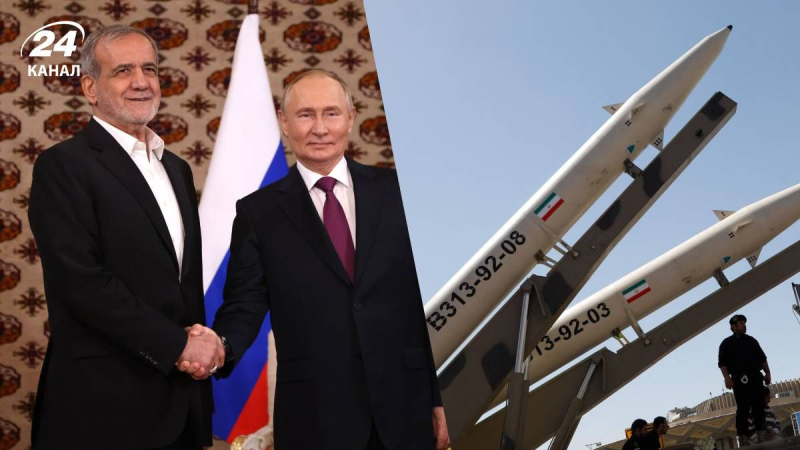Iran and Russia May Sign an Agreement: What Can Prevent This Military Collaboration Victoria Grabovskaya Iran and Russia are planning to sign a strategic partnership agreement similar to the one Moscow previously concluded with Pyongyang. The Russian-Iranian agreement is to be concluded a few days before Donald Trump's inauguration on January 20. Military expert Vladislav Seleznev told Channel 24 how the deepening collaboration between Iran and Russia will affect the course of the war in Ukraine. At the same time, there is a lever of influence that could hinder cooperation between Tehran and Moscow. Seleznev noted that the government of the Islamic Republic of Iran has been under sanctions for more than 40 years, but it is obvious that this is not a very effective option. It allows Iranian industrialists to produce a fairly wide range of military equipment and weapons, in particular missiles. Of course, this is one of the elements of Moscow's interest in collaborating with Tehran, because it is obvious that the Russians need ballistic missiles, he emphasized. Ukraine, unfortunately, has few resources such as an air defense and missile defense system that would be effective in destroying enemy ballistics. The massive drone and missile attack on December 25 once again showed that we are capable of dealing with cruise missiles, but we are not very good at shooting down ballistic missiles. Therefore, the North Korean KN-23 missiles and, in the future, the Iranian Fateh-110 and Zolfaghar missiles could create a lot of problems for us, the military expert emphasized. There has been no information about the combat use of Iranian missiles so far. However, everything could change in the near future. The only effective lever of influence that exists in this situation is Iran's own need for the appropriate forces and means, because the degree of confrontation in the Middle East is not decreasing. Moreover, there are certain signs of preparations for larger-scale military clashes in the region. That is why officials in Tehran will primarily care about their own national security interests and will not rush to transfer the weapons that they themselves may need to Russia, noted Vladislav Seleznev. At the same time, certain agreements make it possible to make such military-technical collaborations more large-scale and, accordingly, intensify the process of supplying both weapons and ammunition, which is certainly not to the benefit of Ukraine. By the way, international security expert Taras Zhovtenko believes that due to the inability of the Russian military-industrial complex to restore the losses suffered by the occupiers at the front, the Russians are forced to not adhere to contracts for the supply of weapons to other countries. In particular, Russia is delaying the transfer of Su-35 bombers to Iran. However, according to Zhovtenko, Tehran is using this for additional pressure in negotiations on a future agreement on strategic partnership with Moscow.
Russians need weapons
Iran and Russia May Sign Agreement: What Could Prevent This Military Collaboration
33

